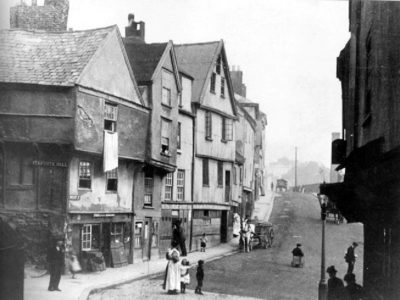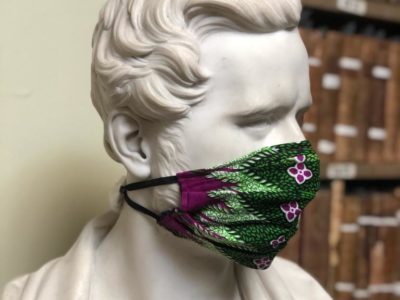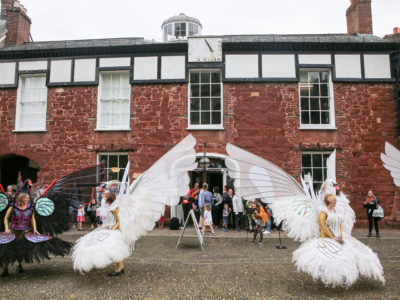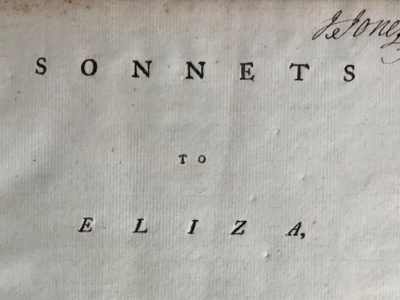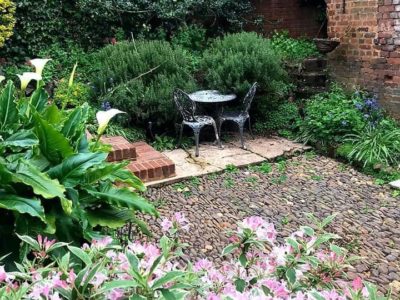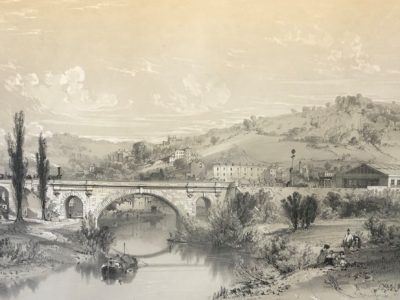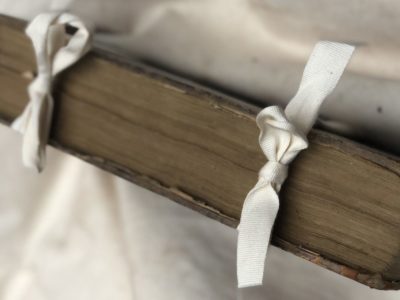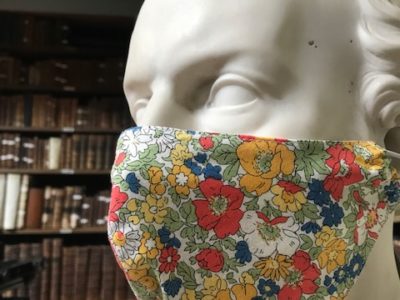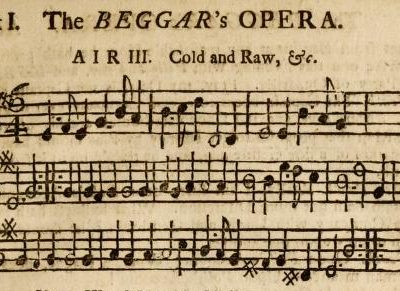What's on
Heritage Open Days – A Snapshot in Time
Much of Exeter’s long history has been well documented, however one area that is less well documented is the West Quarter. Whilst the famous Stepcote Hill is featured in many postcards and guidebooks, the area around it, prosperous in medieval times, was designated a slum area in the 1920s and scheduled for redevelopment.
Last September historian Dr Julia Neville, in collaboration with the DEI, invited members to join a research group to study the history of the West Quarter in the 1920s. The group has been working on the project since then, using resources from the DEI library, those at the Devon Heritage Centre and the Central Library, and websites such as .ancestry.co.uk. Of course, the group’s work has been challenged by the Covid-19 crisis, but members have continued utilising on-line resources.
Reopening information for members – September 2020
Our phased reopening plans for the Institution - September 2020
Trustees needed to help us to deliver ‘The Next Chapter’ – Sept 2020
The Devon and Exeter Institution is an Independent Library and Educational Charity in the heart of Exeter, founded in 1813. We welcome new members and visitors of all ages. In March 2020 we were awarded a major grant from the National Lottery Heritage Fund for our development project 'The Next Chapter'.
John Newte (1755-1792) – a Devonian sonneteer
Sonnets to Eliza was published in London by John Murray in 1790. The anonymous work, written ‘by her friend’, is extremely rare. The English Short-Title Catalogue lists only one copy (T207964), held at the National Library of Wales. No contemporary sources offer a clue to its author – but an inscription on the copy at the Devon and Exeter Institution suggests it was written here in Devon.
Heritage Open Days 11-20 September 2020 – Hidden Nature
Join us here in the Institution garden or online, for Heritage Open Days. This year's theme is 'Hidden Nature' and we invite you to view the Institution from a different perspective.
August Saturday Programme – Heritage Outside!
We're back with safe and welcoming workshops in the Institution garden.
Saturday 8 August - Make a Terrarium
Saturday 29 August - Floral Fun
Lithographs of the Great Western Railway by John Cooke Bourne (1814-1896)
From his home in London, John Cooke Bourne (1814-1896) witnessed the construction of the London and Birmingham Railway, the first main-line railway to enter London. The London and Birmingham Railway Company was founded in 1833 and work soon began on a London terminus. Engineers George and Robert Stephenson chose a site on the edge of the city; a station with two platforms and two hotels was designed by Philip Hardwick (1792–1870) with a huge 70-foot Doric portico marking the gateway to the north. London Euston station officially opened on 20 July 1837. The following year a temporary terminus opened on Bishop’s Bridge Road in Paddington heralding the expansion of the railways to the west.
Discover brand new ways to support our conservation programme and become part of the history of the Institution
The Institution is a very special place in the heart of Exeter and we need your support now more than ever to ensure that it continues to thrive for generations to come. Watch the video to find out how you can get involved and become part of the fascinating history of the Devon and Exeter Institution.
Reopening Information for Members – July and August 2020
Our phased reopening plans for the Institution - July and August 2020
John Gay’s The Beggar’s Opera
Originally from Barnstaple in Devon, John Gay (1685-1732) became one of London’s most renowned dramatists. His satirical ballad opera, The Beggar’s Opera, opened at Lincoln’s Inn Fields Theatre on 29 January 1728 and ran for 62 nights. Gay’s assault on the topsy-turvy morals, double-standards and self-interests of 18th century politics and aristocratic society remains one of the few 18th century plays still performed today.

